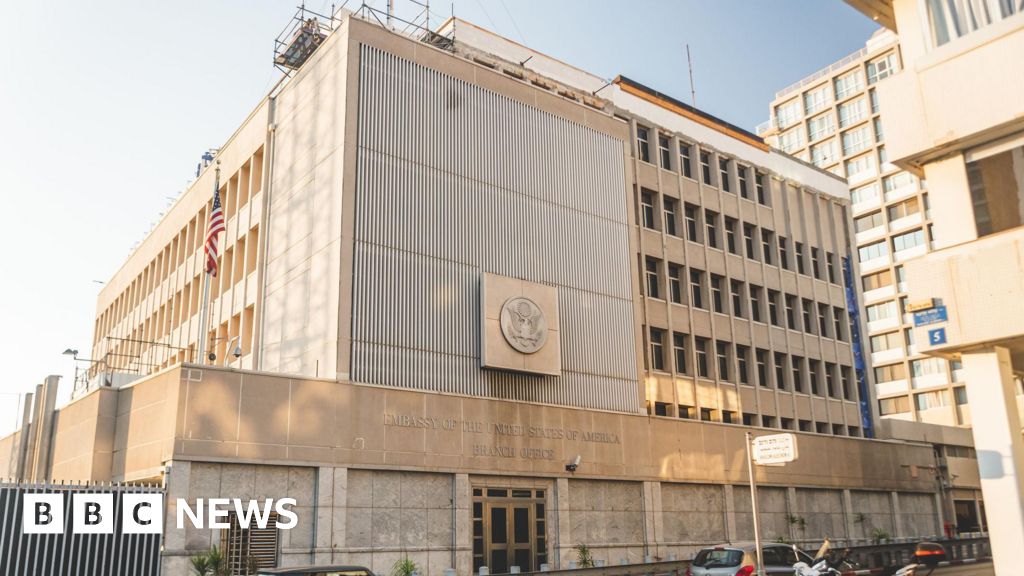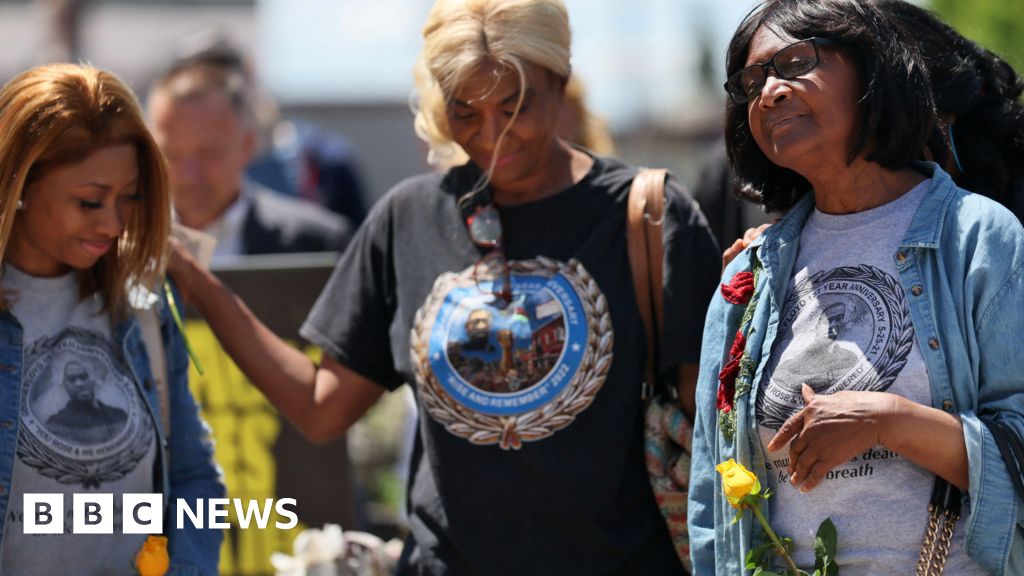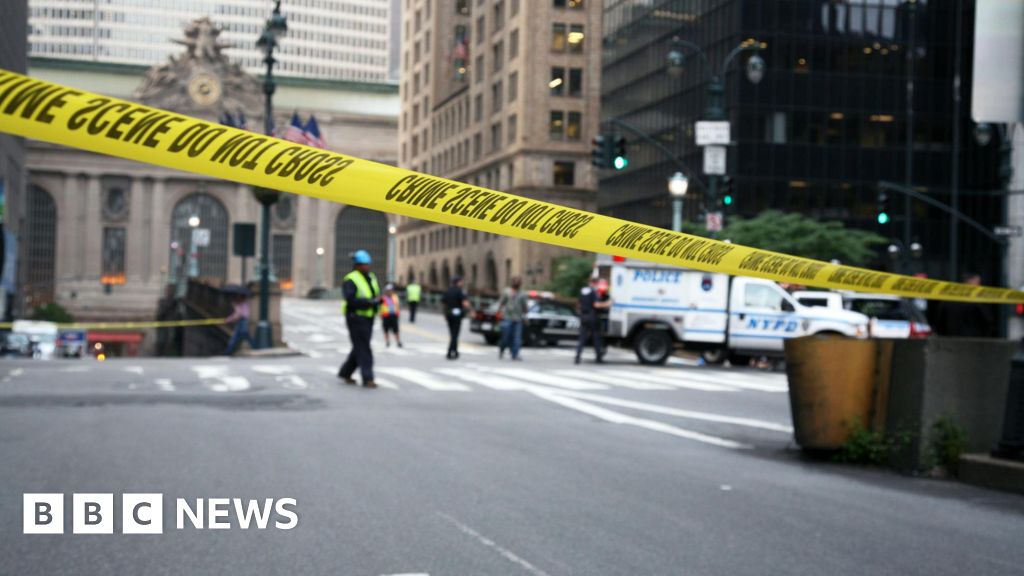ARTICLE AD BOX
By Anthony Zurcher
North America reporter
Image source, Getty Images
The US Supreme Court on Monday heard arguments in the case of an American football coach suing for the right to pray at mid-field after his high school team's games. The court's conservative majority could use the lawsuit to expand the boundaries limiting religious expression in public schools.
Joseph Kennedy first had the idea to pray after high school football games when he was watching television and came across Facing the Giants, a 2006 film that featured a coach at a small religious academy who led his team to a state football championship after praying and emphasising Christian values to his players.
Mr Kennedy was considering whether to take a job as a coach at a high school in Bremerton, Washington - a town near Seattle - despite having little experience playing American football. His wife worked for the school district, and he had been offered the job based on his services as a US Marine, where he dabbled in the sport.
He accepted the position, and for the next seven years prayed on the field after the games - sometimes alone and sometimes with players - apparently with little notice or controversy.
That changed after a game in September 2015, when an opposing coach notified the Bremerton school principal of his actions. The school informed Mr Kennedy that his prayers could be construed as a school endorsement of religion, which run afoul of a long line of US Supreme Court cases that limited religious activities in public education.
Mr Kennedy refused, and after a post-game prayer that October, became a public and media spectacle, with a crowd of spectators gathering on the field around the coach, the school placed him on leave.
At the end of the season, instead of attempting to renew his one-year coaching contract with the school, he sued Bremerton for infringing on his constitutional right to freedom of religion and sought to make his case on a nationwide media tour.
And so began a six-year legal battle that puts several aspects of the First Amendment to the US Constitution - which protects the free speech and religious exercise but also prohibits the "establishment" of a religion by the state - in tension.
Image source, Getty Images
Image caption,Supporters show up outside the Supreme Court
During Monday's Supreme Court oral arguments, Mr Kennedy's lawyer argued that he was simply a private citizen who wished to be able to express his personal religious views after his official duties as coach had concluded. The Bremerton school district was punishing him for those views and for the exercise of his speech rights, in violation of his constitutional protections.
Bremerton's lawyer countered that Mr Kennedy's actions were much more than private prayer - they were disruptive group displays conducted on school property, which could have a coercive effect on students and athletes with different religious beliefs.
The court's nine justices questioned the two lawyers throughout nearly two hours of hearings, frequently posing hypothetical cases to determine the limits on what the two sides considered acceptable religious display in a public-school setting.
Could a teacher read the Bible or audibly pray before or after her class, asked Sonia Sotomayor, one of the more liberal justices. Mr Kennedy's lawyer said he thought she could. A conservative justice, Clarence Thomas, asked Bremerton's lawyer if a coach kneeling in protest during the national anthem counts as government-endorsed speech. He said it could.
Would a coach who made the sign of the cross while on the field with his players be open to school discipline, asked Justice Brett Kavanaugh (a conservative). Bremerton's lawyer said probably not, as long as the coach didn't make himself the "centre of attention".
America's top court has long upheld separation of church and state
Legal line-drawing like this is a common undertaking for Supreme Court justices when considering sticky issues of constitutional rights and protections - and this case will likely involve some measure of that. Given the tenor of the questioning from the conservative justices, however, it appears probable that the court will side with Mr Kennedy to at least some extent. The question may be just how far the court moves previously established boundaries on religious expression in public schools.
And those stretch back decades - something that Democratic Congressman Jamie Raskin of Maryland, who filed a Supreme Court brief defending Bremerton in this case, noted in a post-argument press conference.
"As long as there are pop math quizzes, there will be prayer in the public schools," he said. "The point is that employees of the school and officials of the school cannot engage in prayer and then try to get other peoples to participate, because that clearly violates the separation of church and state."
In 2000, a 6-3 majority of the Supreme Court ruled that student-led prayer before a high-school football game, broadcast over the school's public address system, was an unconstitutional government endorsement of religion. A slim 5-4 majority in 1992 held that a clergy-led prayer at a public-school graduation was inherently coercive and therefore unconstitutional.
One of the foundational religious establishment cases dates to 1971's Lemon v. Kurtzman, which held that laws must have a "secular legislative purpose" and set up a three-part test to determine whether they survived constitutional muster.
The increasingly conservative court has largely abandoned this "Lemon test" in favour of more sympathy toward laws that permit or even support religious expression, but it has not been explicitly overruled by the court. The court could do so - or even overturn more recent legal precedents - in the Bremerton case.
Conservative religious freedom advocates are calling for exactly such a move.
"Religious liberty isn't a right to be weird in the corner," said Lori Windham, senior counsel with the Becket Fund for Religious Liberty, after Monday's arguments. "It's a right to bring the deepest, most important truths to public life".
That's a sentiment many of the justices on the Supreme Court seem to endorse - as could be made clear when the decision in this case is handed down later this spring.

 3 years ago
60
3 years ago
60








 English (US) ·
English (US) ·